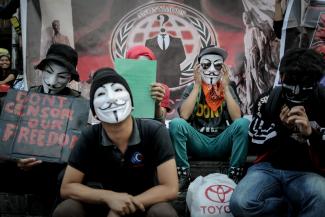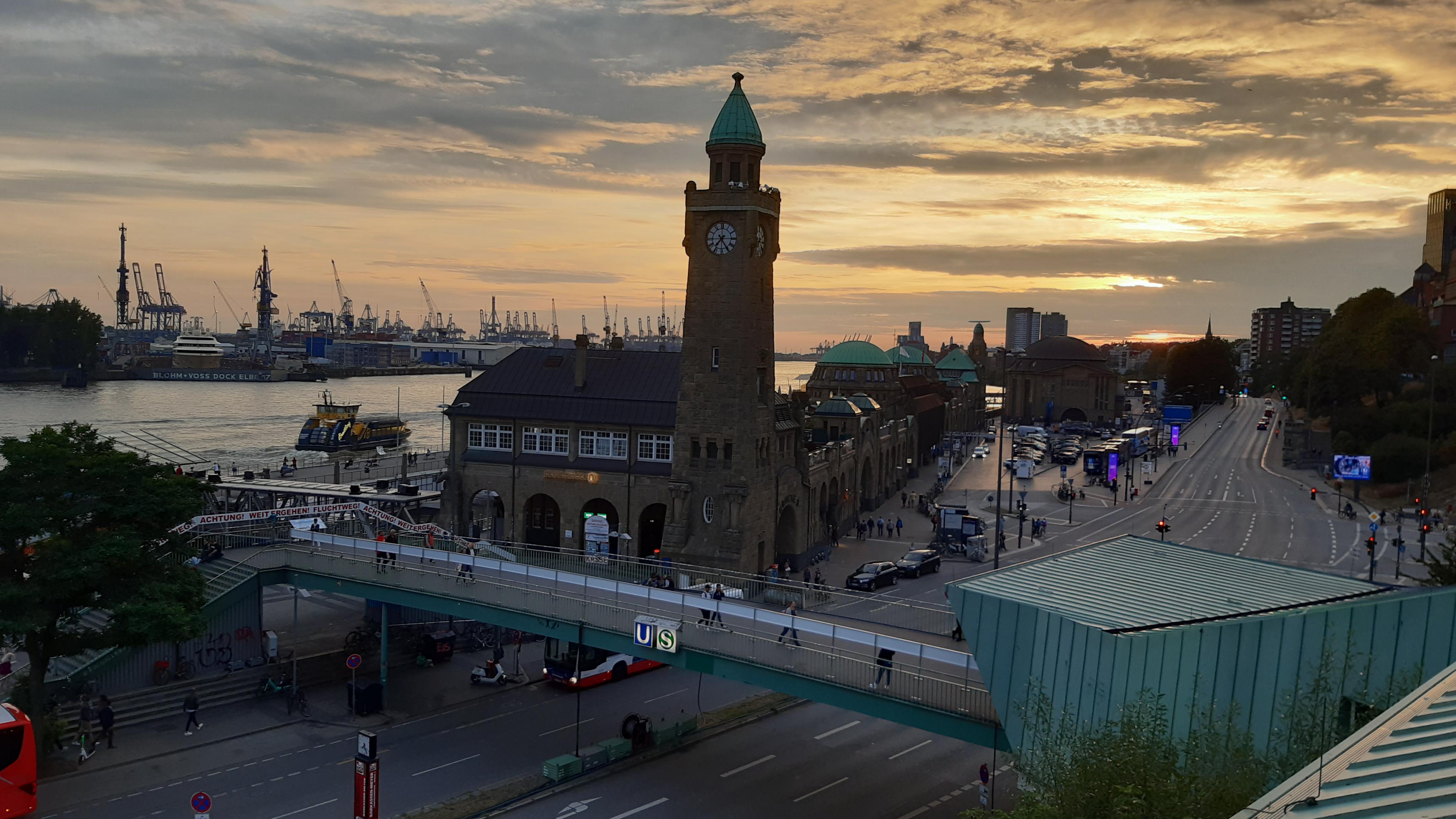Civil society
Protective encryption

The era is not quite over yet. “Internet meant a lot to us, because it helped us to coordinate and organise during the revolution,” says Oksana Romaniuk from Ukraine, referring to the time before President Viktor Yanukovych was toppled. She is the spokesperson for Reporters without Borders in her country. “The Internet was an island of free speech in times of harsh censorship.” She adds that, even though only about one third of the country has web access, the Internet’s relevance is growing because of Russia’s partial control of TV programmes.
The Internet is a crucial forum for Ethiopian activists too, reports Markos Lemma, a blogger. In his eyes, there is reason to question whether it really is a sphere of free speech since the Internet penetration rate is only of about two percent. On the other hand, Ethiopia’s most popular print magazine only has a circulation of 25,000 copies, so Lemma insists that the Internet is one of the most important sources of information, after radio and TV stations that are run by the government. He especially refers to Facebook, as for many Ethiopians this is the only site to visit when going online.
Online activism is risky in Ethiopia however. Shortly before Lemma addressed re:publica, an international social media conference in Berlin in May, six bloggers from the Zone 9 Collective were arrested. The social media were abuzz with outrage.
Reem Almasri from Jordan is aware of governments trying to restrict the freedom of online expression. She is involved in the media platform 7iber Dot Com. “I don’t want to romanticise the effect of the Internet on freedom of speech,” Almasri says. Her blog and 300 other websites were blocked last year after the government passed a new law that requires online media to get a licence.
Almasri states that she was not surprised. “We have already been through a lot of censorship when it comes to books and movies,” she says. Therefore she had been expecting Internet censorship to happen at some point in time anyway. Before that happened, however, people took advantage of Internet freedom. In 2007 alone, some 200 blogs and 400 websites were launched in Jordan, Almasri reports, and about 70 % of the people have access to the web today.
The government initially promoted Internet connectivity, as “it wanted Jordan to become a regional hub for the information and communication technology sector,” Almasri recalls. For a long time, the authorities did not intervene. But after the Arab spring had rocked neighbouring countries, the government issued new repressive laws, including the one on media matters.
Ukrainian activist Romaniuk is also aware of state interference. Her laptop was hacked once, and all pictures and manuscripts were deleted. Nonetheless, she does not shy away from the Internet now. “Social media are important tools,” she says, “so we have to learn to become better at protecting ourselves.”
Security lessons
Maya Indira Ganesh of the independent Tactical Technology Collective knows what activists who want to criticise governments can do in order to stay safe. The Collective is an international team of information specialists, technologists, designers and human-rights activists. It has started an initiative for online security and privacy protection called “Security in a Box”.
Its homepage quotes Edward Snowden, the man who had worked for the US National Security Agency (NSA) and revealed last year to what extent the USA is spying internationally: “Properly implemented strong crypto systems are one of the few things that you can rely on.” Securityinabox.org is designed to convey the relevant information in 14 languages. The website also offers training programmes in data security and encryption.
Demand is huge. Some 1.5 million visitors have checked out the documents on the website in 2013, according to Ganesh. She emphasises that anyone who has become knowledgeable in these matters can support activists abroad, and that Ukrainians have benefitted too.
“We distinguish between countries with low, moderate and high risks,” Ganesh says. In this respect, Ethiopia is a high-risk nation since data protection is hardly practiced, even though the Internet serves many citizens as the only forum for free expression. Digital safety measures can thwart surveillance and prosecution by authorities, Ganesh points out, adding that some tools can also be used to detect surveillance and even corruption: “Government actions also leave digital traces and shadows.”
According to Ganesh, it is worth to invest in acquiring the knowledge required: “Surveillance can be taken for granted, but we don’t want citizens to only start using protective means once something has happened.”
In the eyes of Roger Fischer from Germany’s Federal Ministry for Economic Cooperation and Development, there is “no fundamental difference between freedom of opinion online and offline”. He warns, however, that it takes a long time to entrench freedom of expression in any given country. He says it is important to find locally appropriate measures to protect activists.
According to Fischer, a particular challenge is that, though one can be sure of being surveilled online, one never quite knows who is doing so. Almasri, the Jordanian blogger, is only too aware of this truth. She says people in her country are used to being censored and monitored by their own government, but now the American secret service is watching them too. She points out that Jordan is the third among the countries most scrutinised by the NSA, if one is to believe a report published by the White House last year. Eva-Maria Verfürth










